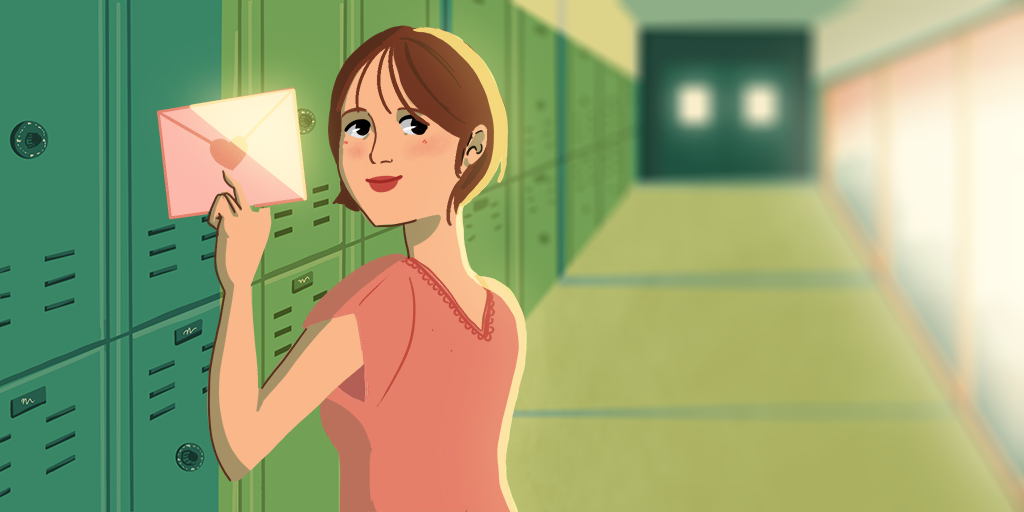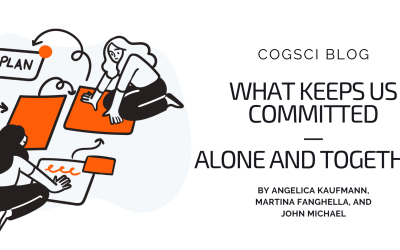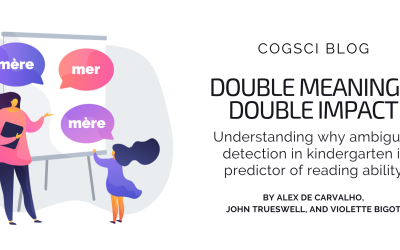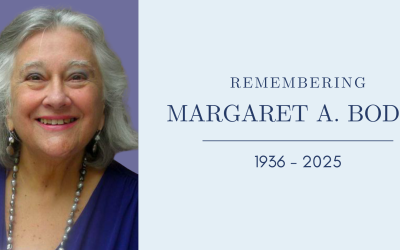By Lilia Rissman
Sketch by Natalia Vélez
You were always there in the background – two lockers down, two rows back in band practice. But walking the hallways of school these past months, I find myself looking at you in a new way. I’ll never know how it happened — maybe my pandemic-induced loneliness helped me appreciate the depth of your charms. But here we are, and I can’t get you out of my mind.
Lab Meeting, I wasn’t giving you the love that you deserve. But I want you in my life, and I’m ready to make this relationship official. I love you because, at your best, you are a creative and vital place, an incubator of scientific life.
As a new PhD student, I needed some serious time in the incubator. Those early years were difficult because I was discovering the profound gap between what it takes to get an A in a college class and what it takes to get an article published in a prominent journal or get a grant funded. In college, I was good at getting A’s. There, my vital place was a remote corner of the library stacks, where I could read, think, and write, alone. But science isn’t something we can do alone. We need our colleagues to make our work better, and they need us. Much of my growth as a PhD student happened out in the open, away from the comforts of solitude.
Throughout my school years, I didn’t like talking in class. I remember a poetry class in college, the professor asking which literary passage a poet was referencing, me whispering “reader, I married him” just loud enough for the professor to hear the answer but not know who said it. I was afraid of being wrong, and publicly exposed as wrong. We hold tightly to our ideas, our identity wrapped up in them. Science, however, requires a constant process of working with other people to refine our jumbled ideas into something more lucid — a process at times more akin to ripping out hair with hot wax than to the gentle molding of clay — a comfort level with being wrong, or at least not being right. Lab meeting was where I learned to find safety in this process, hot wax and all.
Giving and receiving feedback publicly is a skill, if not an art — it takes finesse to convey to a visiting speaker “I’m sorry but your problematic assumptions invalidate this entire set of experiments” in a way that invites reflection. In other words, it takes a delicate balancing act between truth and compassion. You can feel it in the room when the balance is off. When no one tells the postdoc giving a practice job talk that their message is getting lost because they’ve included too many details. When a professor makes a frustrated remark that borders on a personal attack. When a graduate student responds defensively to reasonable comments about their dissertation. As givers of feedback, our first duty is to uphold the integrity of the science, not to protect our colleagues from negative emotions. At the same time, we never have license to attack, belittle or convey disrespect.
When this balance is successful, the results can be transformative. In my fourth year of graduate school, I was presenting a half-baked dissertation proposal in a seminar attended by my entire department. About 20 minutes in, a senior professor stopped me and said, “I don’t understand what you’re doing.” In the discussion that ensued, it became clear that I wasn’t going down a fruitful path. I ended up completely revamping my dissertation proposal. It is entirely possible that without this professor’s outsider perspective and his commitment to helping me improve my work, I would not have produced a publishable dissertation.
Striking this balance between truth and compassion isn’t easy, which is why we need the magic of lab meeting, the magic of being able to take risks. For me, slowly gaining the courage to assert myself — if I don’t understand something, is it because of a gap in my knowledge, or is there really something amiss in the work? Is my perspective valuable at this moment? Will my colleague feel hurt if I question their study in this particular way? And slowly learning how to receive, trusting that your mentors and colleagues are challenging you because they believe you can do better. Lab meeting is a sandbox — it’s okay to fall flat on your face. That day in department seminar was painful, discouraging, and searingly embarrassing. But I was able to use the feedback to improve because I felt deeply valued and respected across my department. And that feeling of trust and belonging first emerged in the context of lab meeting, where I observed that being challenged and being respected can go hand in hand.
Of course, this magic won’t happen if we don’t give lab meeting a little love. There’s a social contract that I believe is necessary: the meeting leader respects the time, interests and abilities of the lab members and provides safety from ridicule. The members bring their complete engagement, their honesty and humility. The meeting can then be infused with shared intention and sense of purpose. It is delightful if the members of a lab like each other; it is essential that the members of a lab trust each other. As lab meetings continue to be held online for the foreseeable future, the strength of these bonds may be more important than ever.
See you after band practice, Lab Meeting.



